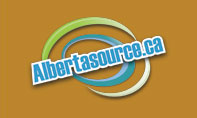 Heritage Community Foundation Presents
Heritage Community Foundation PresentsAlberta Online Encyclopedia
Language
After more than a century of dominance, the French language received its first official upset in 1892. While the Northwest Territories Act of 1891 permitted the use of both French and English in the Legislature, the provincial government rarely observed this right. Bending to the will of a swelling English-speaking population, the Legislative Assembly of what was then still the Northwest Territories adopted a resolution declaring English the official language of the Legislature. By law, English became the exclusive language of business in the Canadian political and legal arenas.

By the time Alberta was made a province in 1905, the French language had been dealt a series of aggressive blows, and the use of French in government, the courts and schools was made illegal. A growing number of non-Francophone Roman Catholics had settled in Alberta, and the Church, the bastion of Francophone culture in the West, became increasingly anglicized. With no real legislative support, the French communities feared being swallowed up by an English majority. By the 1960s, French organizations regarded exclusive French-language education as the key to the preservation of their culture.
They would see some progress when, in 1969, the Royal Commission on Bilingualism and Biculturalism (RCBB) was called upon to evaluate English-French relations in Canada. The RCBB concluded that the smaller Francophone communities outside of Québec were in danger of assimilation. At its recommendation and under increased pressure from Québec, the Canadian Government passed the Official Languages Act, by which French and English became Canada's two official languages. However, while the Alberta government acknowledged on several occasions the importance of French culture to the province's heritage, no practical moves were made to encourage the promotion of the French language. In 1988, the government introduced the Alberta Education Language Policy, which stated that, while school boards were encouraged to recognize the language rights as laid out in the Charter, they were not required to and would not receive financial assistance to establish French schools.
Even as the government both actively and passively discouraged bilingualism during the 1970s and 1980s, a number of special factors allowed Franco-Albertans to retain their language and culture. Most of the province's French-speaking communities were rural, and maintained some degree of cultural hegemony in their local affairs. Likewise, for many French communities the Roman Catholic Church, while no longer at the centre of their community's existence, still played an important part in their social and spiritual lives, promoting the preservation of French culture.
Today, French can be heard on the radio, on television, and read in widely distributed French language publications in Alberta. However, despite its official language designation, French will only be found in federal government offices or in agencies, hospitals and clinics that have French speakers on staff.
Sources:
Julien, Richard A.C. The French School in Alberta: An analysis of an Historical and Constitutional Question. Edmonton: University ofAlberta, 1991.
Smith, Donald B. "A History of French-speaking Albertans." In Peoples of Alberta, Portraits of Cultural Diversity, eds. Howard and Tamara Palmer, 83-108. Saskatoon: Saskatchewan.


For more on the towns of St. Vincent and St. Paul, visit Peel’s Prairie Provinces.

